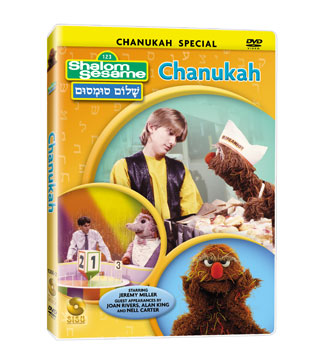The stars of this show were a giant pink porcupine named Kippi Ben Kippod and the grouch Moishe Oofniwho lived in a car, rather than a trash can.
The show lasted a few years, and would later be rebooted in the late '00s with many more characters to represent the ever expanding American cast. But other than the change of location and culture, there wasn't much that set this Sesame Street apart from any others. There was, however, a closely related spin-off of this program which followed the original run of this series. Lewis Bernstein, the Vice President of Global Production for Sesame Workshop, proposed a bilingual co-production between Rechov Sumsum and Sesame Street to allow American children to get a better perspective of the Jewish culture in Israel. Clips from both shows would be used as familiar and new characters would alternatively speak in English and Hebrew. The result was Shalom Sesame.
The show catered to a slightly older audience of elementary and middle school students. This series also underwent a reboot when Rechov Sumsum resumed production. Each episode specifically focuses on an aspect of Israeli life, rather than the usual pre-school curriculum. One of the original eleven episodes that aired in 1990 was about Chanukah.
Featuring Jeremy Miller from TV's Growing Pains!
There is little plot to this special, as it mostly consists of Jeremy performing in various scenes and sketches that explain some aspect of Chanukah, whether it be the history...
Time-traveling fun in "Maccabee to the Future!"
...traditions...
The fifth day of Chanukah is widely regarded to be the best day.
...or customs of the holiday.
Such as everyone's favorite game show Dreidel of Fortune!
While the show is ambitious in covering new ground for an American audience, the execution seems a little haphazard. For example, because there had not been a Chanukah episode of Sesame Street, there was no appropriate footage to use from the English version. The closest connection that could be made was with the fact that there are eight (8) days of Chanukah, so almost every song and sketch that dealt with the number 8 was included. I suppose if there is one fact that children should know about the holiday, it's that it lasts eight days.
Ah yes, the Octopus: The Chanukah of Sea Creatures, if you will.
The main storyline that pokes it's head periodically throughout the special involves Kippi carrying a torch (à la the Olympic relay) to light a menorah at the end. See, a menorah is used on Chankuah...
Well, not everything has to make a lot of sense.
And what Chanukah special wouldn't be complete without Moishe Oofnik trying to sell stale sufganiot (jelly doughnuts)?
The special may be all over the place, but it has good intentions. This was the first of it's kind, especially for a Henson production. It's nice to know that the spirit of Sesame Street can be used to inform people about more than just the alphabet and numbers. Chanukah would later be revisited in other specials, such as Elmo's World: Happy Holidays and Shalom Sesame's Chanukah: The Missing Menorah (which is able to reuse the Elmo's World footage for the American segments).
Baby Bear teaches Telly the proper way to play Dreidel.
Despite being a minor holiday that has been inflated by the media to compete with Christmas commercialism, Chanukah remains quite under represented in the television specials field. The few that exist maintain a quiet presence that focus more on education of the event, rather than becoming an over-the-top production. Mostly, they serve as a reminder that while Christmas can be overwhelmingly present, it is not universal. A diverse population covers this Earth, each with their own family traditions. Take some time to learn from each other.
Happy Chanukah!










No comments:
Post a Comment